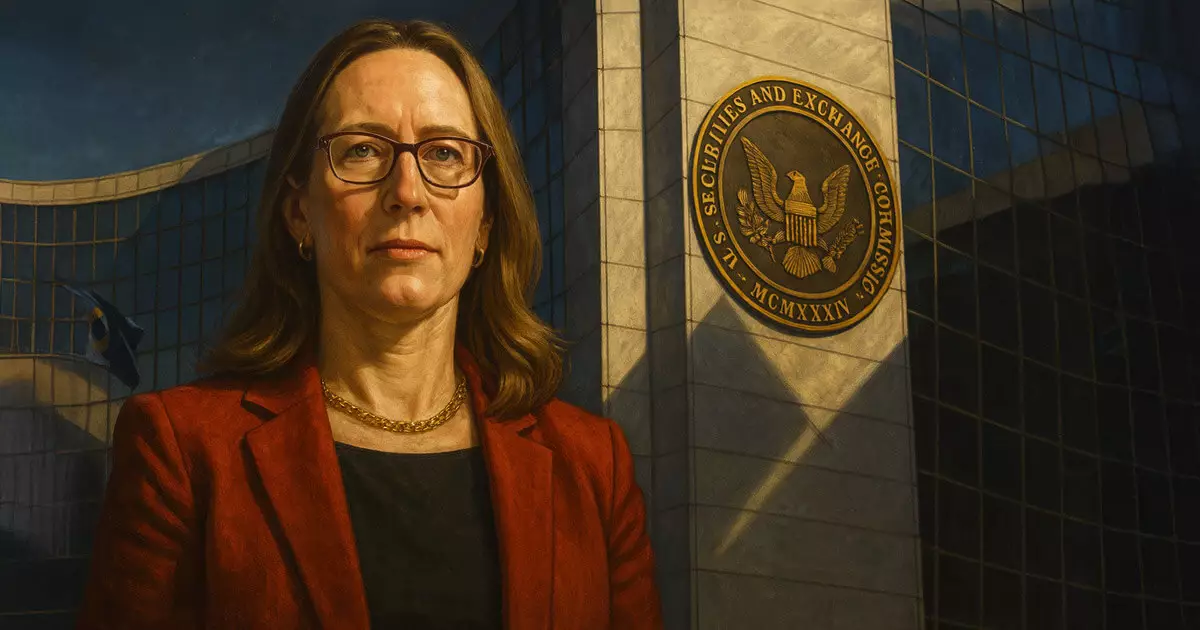The Securities and Exchange Commission’s decision to expand its “Crypto on the Road” tour represents a troubling misstep in the ongoing quest to regulate digital assets effectively. While ostensibly aimed at understanding the needs of small, innovative teams, this initiative risks creating a superficial dialogue that ultimately favors bureaucratic control over technological progress. By exclusively targeting minuscule startups and developers—primarily those with fewer than two years of existence and less than ten employees—the SEC craftily excludes the broader spectrum of the crypto ecosystem that ought to be at the core of meaningful policy development. Small teams are indeed vital, but their insights cannot substitute for comprehensive engagement with seasoned industry players, legacy financial institutions, and consumer advocates who contribute to a balanced regulatory environment.
Furthermore, the SEC’s approach fosters an environment of tokenistic consultation. Publishing participant lists and providing platform for small voices might seem transparent but could turn into a hollow spectacle devoid of serious influence. It suggests a check-box exercise that skirts the necessity of establishing clear, enforceable standards rooted in technological realities rather than bureaucratic whims. This narrow outreach risks creating a regulatory landscape that is piecemeal, unpredictable, and heavily tilted toward enforcement rather than fostering innovation—a danger that should be front and center for policymakers committed to responsible oversight without stifling growth.
The Undermining of Decentralization and Responsible Innovation
The SEC’s apparent fixation with token classification and traditional securities laws signals a fundamental misunderstanding of decentralization’s essence. The agency’s focus on applying the Howey test, a century-old legal doctrine, highlights a reluctance or inability to adapt legal frameworks that align with the unique properties of blockchain technology. In doing so, it implicitly assumes that all digital tokens can or should be shoehorned into existing securities definitions, regardless of their decentralized nature or intended use cases.
This approach ignores the innovative potential in decentralized finance (DeFi), tokenization, and smart contracts—areas that, if unencumbered by overly rigid regulations, could drive significant economic growth and technological advancement. By focusing on classification, the SEC risks curbing experimentation, discouraging startups from engaging in meaningful development out of fear of unintended legal consequences. In essence, the agency’s drive for control might inadvertently suppress the very innovation that could elevate America to a leadership position in the digital economy, handing that advantage to less regulated jurisdictions with more forward-looking policies.
The Political and Practical Implications of overregulation
The move to take crypto regulation on the road also exposes a deeper political conundrum: whether regulators can balance protection with progress. In their current form, securities regulators tend to lean toward caution—often at the expense of fostering a competitive environment. This overreach may stem from a desire to placate larger financial institutions and traditional power brokers who view decentralization as a threat, rather than an opportunity. While investor protection is a legitimate concern, the SEC’s heavy-handed approach suggests a preference for maintaining the status quo rather than embracing gradual, sensible reform.
Practically speaking, this roadshow slightly improves transparency but does little to reassure industry players anxious about the long-term regulatory landscape. It may create an illusion that the SEC is listening, while in reality, it raises barriers to entry and pushes development into shadows or foreign jurisdictions where regulators are more receptive. If the goal is to craft pragmatic, future-proof regulation, then these outreach efforts need to be far more comprehensive—extending beyond token startups to include some of the most innovative sectors and established players ready to contribute real-world insights.
The Road Ahead: Toward a More Balanced Approach
Ultimately, the SEC faces a dilemma: continue to wield regulators’ traditional tools designed for legacy markets or adapt to the transformative power of blockchain technology. The current strategy, centered on outreach that appears reactive rather than proactive, risks entrenching the worst tendencies of regulatory overreach. Instead of operating as a facilitator of responsible growth, the agency seems intent on framing the narrative around control and compliance, potentially sacrificing America’s competitive edge.
For meaningful progress, policymakers must recognize that technological innovation requires a nuanced, flexible legal framework—one that respects the decentralized ethos while safeguarding investors and consumers. A successful path forward involves engaging industry veterans, established projects, and institutional stakeholders in open, constructive dialogue instead of a tokenistic roadshow that feeds into bureaucratic entrenched interests. Otherwise, the United States might accelerate its decline as a hub for crypto advancement—an unfortunate, yet foreseeable consequence of a regulatory approach rooted in resistance rather than adaptation.

